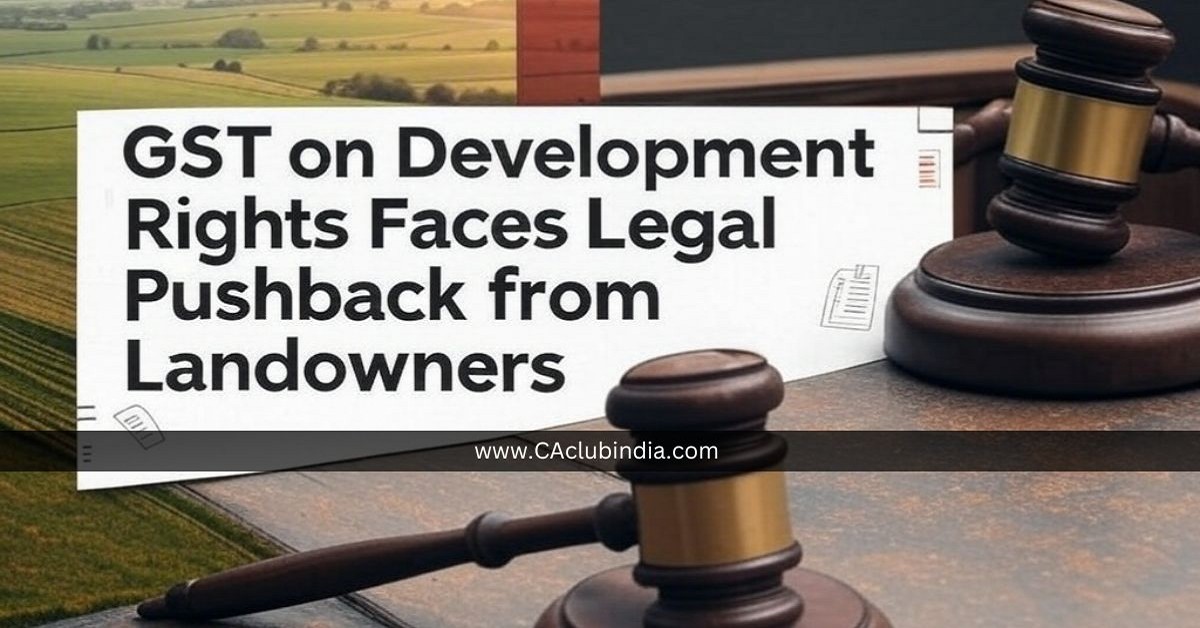Several landowners across India have approached various High Courts challenging the GST authorities' decision to impose GST on Joint Development Agreements (JDAs). At the center of the legal battle is the taxation of development rights transferred by landowners to real estate developers in exchange for a share of the constructed property or revenue.
A significant case was filed in the Bombay High Court in early April 2025, where ten landowners have petitioned against the GST demand notices issued to them, questioning the taxability of such transactions under GST law.

Dispute Over Tax Liability in JDAs
The GST authorities argue that the transfer of development rights by landowners constitutes a barter transaction and is subject to tax under the forward charge mechanism, with landowners being treated as service providers liable to pay GST. This stance marks a departure from the previously followed reverse charge mechanism, where the liability to pay tax falls on the recipient-in this case, the developer.
Landowners, however, are contesting both the taxability and the mode of taxation, asserting that the transfer of development rights does not amount to a supply of services under GST law and should not attract any GST at all. Their counsel argues that the government's interpretation is inconsistent with the legislative intent, especially in light of notifications issued from April 1, 2019, which must be taken into account.
Legal Battle Across Multiple High Courts
While the Bombay High Court hears the case filed by ten landowners, similar petitions are pending before the High Courts of Telangana, Mumbai, and the National Capital Region. The outcome of these cases is likely to have far-reaching implications for the real estate sector, particularly in urban centers like Mumbai, Bengaluru, and Delhi-NCR, where joint development and redevelopment projects are common.
18% GST Could Reshape Real Estate Cost Dynamics
The application of 18% GST on development rights threatens to significantly increase the cost burden on landowners and disrupt the financial structuring of joint development agreements. Real estate developers and industry bodies have expressed concerns that an adverse ruling could deter landowners from entering JDAs, ultimately affecting housing supply and project viability.
Precedent-Setting Judgment Awaited
"This dispute revolves around three key issues-whether the transaction is taxable, when the tax liability arises, and who is responsible for paying it," said the advocate representing landowners in the Bombay High Court. The pending verdict is expected to set a precedent on the GST treatment of JDAs, providing much-needed clarity to the real estate industry.
As India's real estate sector continues to evolve post-pandemic, the legal outcome of this case will shape how landowner-developer collaborations are structured in the future and could prompt changes in GST law or its interpretation going forward.







 CAclubindia
CAclubindia
